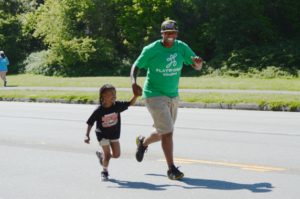We understand that families are vital to students’ academic, physical, social, and emotional development.
You are the role models who help kids transfer the knowledge and skills from school to the “real world.” Your support makes all the difference.
We have compiled a bank of resources that will help you support positive play at home. These links contain strategies, skills, and tools that can be practiced at home and will reinforce the strategies your child is learning at school.
Thank you for all you do to support positive play!
Games
Looking for games to play with your kids that promote social, emotional, and academic growth? Check out these fun ideas!
Games are important because they promote your child’s social and emotional development. This Life Skills Game Guide contains more than 150 games to ensure that your child is practicing those vital life skills.
These fun indoor games to play with your family can be played in any weather.
Looking for ways to keep your student’s mind sharp over break? Check out these educational games for kids.
Looking for ways to keep your kids entertained this summer? These fresh summer game ideas will help your kids practice positive play in the pool, at the park, in the car, and more.
Be in the Know
It’s natural for every parent to be concerned about recess. This is a time when kids are, seemingly, less supervised, more likely to get injured, and encountering any number of social challenges. These resources explain the importance of positive play in your child’s development.
Believe it or not, positive play is a skill that needs to be learned, and the ability to play well is largely tied into our ability to communicate. Read about the importance of learning how to play and the relationship between positive play and strong communication.
Play provides many academic, social, emotional, and physical benefits for kids and communities. Why play works explains a few ways that positive play can make a difference.
In our study of the human brain, we are learning that social and emotional skills are just as important as academics. How play fits into social and emotional learning explains how schools are encouraging learning through play.
Has your school recently decided to organize recess time? What is organized recess? How does this help kids grow? is a resource will help you understand the value of an organized recess.
Curious what the Centers for Disease Control and Prevention (CDC) says about play and recess? In Jan 2017, the CDC and SHAPE America released Guidelines for Recess, a new guidance document that provides schools with planning guides and strategies for successful recess.
If recess is an afterthought at your school, don’t wait for someone else to step up and fix it. Download our free PTO/PTA tookit to educate your PTO or PTA and principal about the power of play.
Home Lessons to Prepare Your Kids for Successful Recess
Every parent hopes that their kids will have positive experiences at recess. Here are some strategies that you can practice at home to prepare your student for a successful recess.
Conflicts on the playground are bound to happen. Practicing these conflict resolution techniques at home will help your child be prepared to independently solve playground conflicts when they arise.
When playing with your kids at home, incorporate these six principles to build recess social skills that will transfer to the playground.
Want to change your community? Here are four approaches that families and communities can take to promote kindness.
Kids are naturally open-hearted and kind, but sometimes they don’t know how to adapt games so peers with special abilities can join in the fun. Here are a few tips for making play access easier that you can share with your child to help them include all of their friends.
Adapting games for students with Autism
Adapting games for students with ADHD
Adapting games for students in wheelchairs
Self-Care & Lessons for Parents
Remember: your kids are watching everything you do. The best way to teach kids to take care of their peers is to model this behavior. Be a role model for your kids: 5 ways to take care of each other at work provides recommendations for caring for your coworkers.
Share Recess Lab
Love the resources and information on Recess Lab? Tell your family, school, or community!
